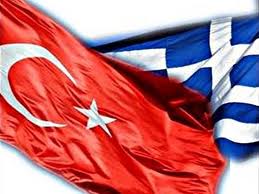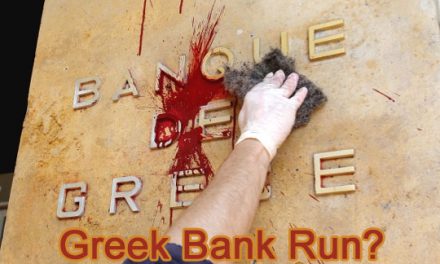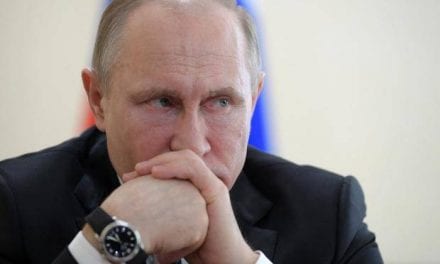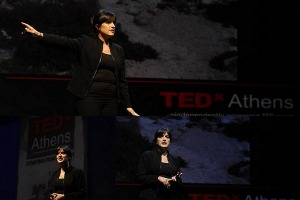By Fotis Kapetopoulos,
Just over a week ago, the Justice and Development Party led government of Turkey threatened the military invasion of Greece over the disputed and uninhabited Greek Imia islets.
The Anglo-Australian media did not report on this. The ABC failed to mention it. This may be, in part, due to the spectre of post-colonial theories that have woven themselves into progressive media narratives, making it impossible to view colonialism other than an event that sits only on the shoulders of Europe’s mercantile industrial states of the 17th to the 19thth centuries.
Edward Said a profound theorist in post-colonial studies has essentialised the West and in doing so, the East. The Jordanian Marxist scholar, Sadik Jalal al-’Azm views Said as a captive to his own Western conceptions of Orientalism. According to al-‘Azm, Said failed to understand the modern nationalisms that guided post-colonial struggles in Asia Minor and the Middle East.
Progressive media now seems to agonise whenever the notion of colonialism is extended beyond the confines of Western industrial European power. In the post-colonial theory rulebook, the Middle East, Africa, and Latin America are infantilised and complex nations, their communities and leaders are mere marionettes responding to Western colonialism.
“We will break the arms and legs of any officers, of the prime minister or of any minister who dares to step onto Imia.” – Turkey’s Yigit Bulut to the Greek Prime Minister.
So when Yigit Bulut, the senior adviser to Turkish President Recep Tayyip Erdogan issued a direct threat to Syriza’s socialist Greek Prime Minister Alexis Tsipras by saying that Athens will: “feel the anger of Turkey, worse than that in Afrin,” referring to the Kurdish-controlled enclave in Syria where Turkish troops have engaged” post-colonial thinkers say nothing.
Mr Bulut went on, “We will break the arms and legs of any officers, of the prime minister or of any minister who dares to step onto Imia in the Aegean,” he said.
The horror of a war between Turkey and Greece is unthinkable. The last war in 1921 resulted in the ethnic cleansing of almost two million Hellenes from Turkey and 500,000 Turkish Greeks from Greece.
The Treaty of Lausanne 1923 marked the end of the Ottoman Empire. It defined the borders of modern Turkey and Greece. The war was a terrible consequence of a modern (Europeanising) Greek desire to pursue a ‘Greater Greece’ ideology. Up until 1921, the Ottoman Empire, and before it the Byzantium, was home to the oldest and continuous settlement of Hellenes dating back to 700BCE.
In the early 20the Century, the German inspired ‘Young Turks’ engineered a raft of repulsions; death marches, collective rape, starvation and the burning of the multicultural Smyrna, now Izmir. The notion of Pan-Turkic nationalism sought the cleansing of all non-Turks, a process that began in 1912-1913 with the Genocide of 1.5million Armenians.
A new hegemonic view of Turkishness had no room for the cultural and religious diversity of the Ottoman Empire. Turkification led by the Young Turks tore asunder the coexistence between Turks, Greeks, Armenians and Syrians.
Mustafa Kemal Atatürk’s role is debated. He was the progressive and secular father of modern Turkey. He was born in Salonika and was fluent in Greek. Yet, his spark ignited an expulsion of the Greeks and Armenians, by others, and Turkification was complete.
Damad Ferid Paşa (1853-1923), the Ottoman Turkish Grand Vizier, described the exterminations of Greeks, Syrians and Armenians in the 1919 Paris Peace Conference “… such as to make the conscience of mankind shudder with horror for ever.”
Nationalist Greeks, also bathed in European eugenic ideas, instigated the expulsion of 500,000 Greek Turks. The Treaty of Lausanne (1923) is known in the vernacular as the Population Exchange – a euphemism. One ‘exchanges’ populations at the end of a barrel of a gun.
Next time you’re chilling in Rhodes, or Izmir, drop a thought for the millions of refugees following the same paths, over rocky outcrops or azure seas, as those refugees did in 1921-23.
As the Ottoman Empire crumpled, anti-colonial fervour resulted in a carve-up of real and symbolic spaces. This was an immersive horror show between the 1820s to the 1920s.
The Greek War of Independence 1821, the first anti-colonial wars of the modern world, is a subject avoided in post-colonial discourses. It was a modern conflict, no less modern than the American Revolution, or the Vietnamese War against the French; however it doesn’t fit the orthodoxies of post-colonial theory.
The Ottomans in response to the declaration of Greek Independence (1821) conducted wholesale massacre of Greek islanders. They devastated the islands of Samothrace, Chios, Rhodes, Kasos and Psara between 1821 and 1824. A Turkish fleet under the Egyptian, Kapudan Pasha Nasuhzade Ali Pasha, killed most of the male population of Chios and sold the women and children into slavery. Eugène Delacroix’s Massacre at Chios (detail in image above) is the second major oil painting by the French artist depicting that crime.
Greeks were no less cruel. The Fall of Tripolitsa in 1822 resulted in the massacre 30,000 Turks and Jews. Theodoros Kolokotronis, the hardened Greek revolutionary commander, was shocked. Historian W Alison Phillips wrote; ” Women and children were tortured before being put to death. So great was the slaughter that Kolokotronis himself says that, from the gate to the citadel his horse’s hoofs never touched the ground. His path of triumph was carpeted with corpses.”
The Ottoman Empire colonised the Balkans and the Middle East for 400 years but in post-colonial studies it is as though it never existed. The Ottoman Pax Imperium descended over the Eastern Orthodox Empire. It deserves serious consideration as all empires do, no less than the Greco-Roman or British empires. Not all was bad under the Ottomans and there was a long peace after war.
War now is not an option. The people of Greece and Turkey could ponder nothing worse than a war. Greece and Turkey, both NATO allies, are heavily armed. Greece is per capita the EU’s most militarised state and Cyprus the seventh most militarised in the world.
Post-colonial analyses, as they are framed, seem to form a new Catholicism, a dogma. There is a script and one follows it.
Greece and Turkey have large modern standing armies and a sophisticated arsenal. They have Euro and American jets, tank divisions and naval capacities. Greece spends almost 3.5% of its GDP on defence while Turkey also spends the same according to the World Bank.
The statements by Mr Bulut seem to be for local consumption – dangerous in an increasingly authoritarian Turkey that has jailed 50,000 people since 2016. However the dissenting voices in Turkey get little sympathy from our post-colonial activists.
Post-colonial theory as it is now presented in public discourse moves towards simple binaries, like coloniser and colonised. Ann Wilson when reviewing Helen Gilbert and Joanne Tompkins’ 1996 Post-colonial Drama: Theory, Practice, Politics points to how the mercantile coloniser is seen as culturally hegemonic while the latter, “the colonised, is diverse and polyvalent.”
She emphasises the “simplicity of this schema, and the sentimental idealization of the culture of the colonized, thus valuing diversity for its own sake.” This approach has little to say on the United States and Greece who were born as a result of anti-colonial revolutions; the United States against England and Greece against the Ottomans.
Ataturk, the father of modern Turkey, and a revolutionary, was born in Thessaloniki and was a European secularist. That’s not unique. Ho Chi Minh’s greatest hero was George Washington. In the Vietnamese Proclamation of Independence of 1945, Ho Chi Minh quoted from the French Rights of Man and the Citizen, and the Declaration of Independence of the United States of America,
We are left less informed as post-colonial theories evade social, cultural, political and historical realities. Last year, when a group of artists organised a conference called something like ‘decolonise your arts practise’ I mischievously posted a question. I asked if they would consider in their conversations the Han, Khan, Ottoman or Persian colonisers? The post was quickly removed. I wonder, equally mischievously, if I had asked them to consider the Greco-Roman and Byzantine Empires?
Post-colonial analyses, as they are framed, seem to form a new Catholicism, a dogma. There is a script and one follows it.
What then can we make of the neo-colonial whims of Mr Erdogan’s government, or his ministers’ language, given language is so important? Never do we or should we question the people of Turkey.
In the end, we must all do what we can to avoid talk of war between two new states born from the same womb. Part of that responsibility may lie on us avoiding sclerosis in thought or the rise of dogma – left and right.



















